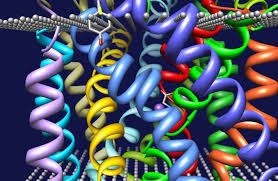Companies seeking to commercialize orphan drug biosimilars are likely to face challenges associated with limited potential market size, uncertainty regarding expanding patient access and loyalty to the reference product.
Commercialization challenges for biosimilar orphan drugs
Home/Reports
|
Posted 23/10/2020
 0
Post your comment
0
Post your comment

The commercial market for orphan drug biologicals in Europe due to face loss of exclusivity by 2024 is currently valued at Euros 501 million per year. Of the 42 currently designated biological orphan products, only about 12% are likely to have a commercial market size across Europe of over Euros 100 million annually. Therefore, the opportunity for biosimilars to enter the market and achieve returns is limited, while the risk of failure is high. Non-orphan biosimilars have in some cases (e.g. infliximab, etanercept and rituximab) achieved annual sales of over Euros 700 million per year in Europe. However, for each of these products, the total potential market (including the reference product and all biosimilars) exceeded Euros 1.3 billion per year, which is several times higher than typical markets for orphan drug biologicals. In 2019, 80% of orphan drugs had sales of less than Euros 100 million, with the average orphan biological sales significantly lower at Euros 61million.
For biosimilars to take share from the originator product, either in treatment-naïve patients or in switch situations, the clinical and patient community needs to be actively supportive. This is already challenging for non-orphan biosimilars and is even more so for patients with rare diseases. Many of these patients endured long periods before being correctly diagnosed and effectively treated and therefore tend to have stronger emotional loyalty to a reference product than seen with non-orphan biologicals or small molecule generics.
Rare disease specialists are more likely than their peers to have collaborated with innovator drug developers on clinical trials, medical congresses or continuing medical education. This level of engagement tends to engender loyalty to the originator company and product, generating ‘stickiness’ when alternative treatments become available. This is particularly limiting for biosimilars, which typically do not provide any meaningful additional benefit to the individual patient. As a result, uptake of orphan biosimilars may be slower and more limited than for non-orphan biosimilars, reducing the commercial market size for manufacturers.
Additional challenges are posed by current tendering approaches used across many European countries. One example is the use of single-winner tenders, which may achieve the greatest price discount but disrupts market competition by excluding all manufacturers from the market for the duration of the tender contract, compromising long-term sustainability.
Related articles
Challenges faced by biosimilar orphan drugs in European health systems
Clinical development challenges faced by orphan drug biosimilar developers
Escalating prices of generic drugs in the US
Permission granted to reproduce for personal and non-commercial use only. All other reproduction, copy or reprinting of all or part of any ‘Content’ found on this website is strictly prohibited without the prior consent of the publisher. Contact the publisher to obtain permission before redistributing.
Copyright – Unless otherwise stated all contents of this website are © 2020 Pro Pharma Communications International. All Rights Reserved.
Source: IQVIA
Guidelines
US guidance to remove biosimilar comparative efficacy studies
New guidance for biologicals in Pakistan and Hong Kong’s independent drug regulatory authority
Policies & Legislation
EU accepts results from FDA GMP inspections for sites outside the US
WHO to remove animal tests and establish 17 reference standards for biologicals
EU steps closer to the ‘tailored approach’ for biosimilars development

Home/Reports Posted 21/11/2025
Advancing biologicals regulation in Argentina: from registration to global harmonization

Home/Reports Posted 10/10/2025
The best selling biotechnology drugs of 2008: the next biosimilars targets








Post your comment